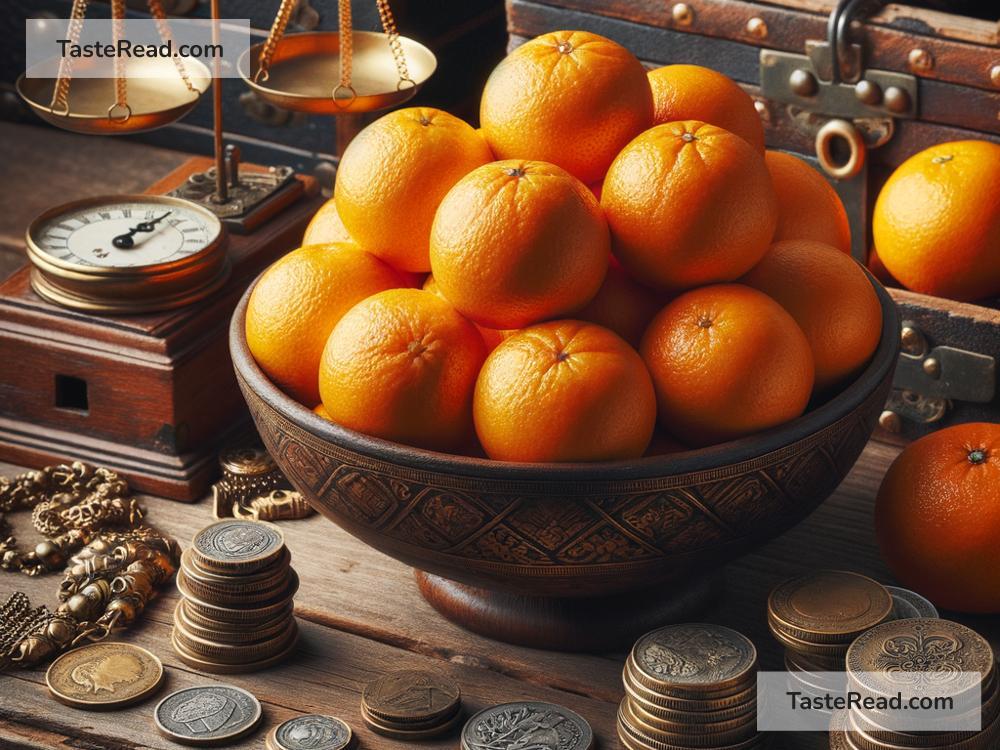How Oranges Became a Symbol of Prosperity
Oranges are one of the most popular fruits in the world. Their bright color, juicy taste, and sweet aroma make them a favorite treat for many people. But did you know that oranges are also considered a symbol of prosperity in many cultures? How did a simple fruit come to represent wealth, success, and good fortune? Let’s dive into the fascinating history and cultural meaning of oranges.
The History of Oranges
Oranges have been grown and enjoyed for thousands of years. The fruit originally came from Southeast Asia, particularly regions like India, China, and Vietnam. Gradually, it spread to other parts of the world through trade and exploration. By about 310 BC, oranges were growing in northern Africa, and later, they reached Europe thanks to Arab traders.
The word “orange” itself has an interesting history. It comes from the Sanskrit word “nāraṅga,” which was later adapted into Persian, Arabic, and European languages. The name reflects the fruit’s journey across different cultures and regions.
Oranges and Symbolism in Chinese Culture
Oranges are especially meaningful in Chinese culture, where they symbolize wealth and good fortune. This connection has a lot to do with their appearance and the language itself.
-
Bright color: The bright, golden-orange hue of the fruit reminds people of gold, a universal symbol of wealth. In traditional Chinese beliefs, gold is associated with prosperity, so anything golden or orange-colored is seen as lucky.
-
Lucky wordplay: In Chinese, the word for “orange” (橙 chéng) sounds similar to the word for “success” (成 chéng). Another fruit in the citrus family, the tangerine (橘 jú), sounds similar to the word for “luck” (吉 jí). Because of this, people often gift oranges and tangerines to wish someone wealth, success, and good fortune.
Because of these associations, oranges are very popular during Chinese New Year. Families decorate their homes with oranges or place bowls of oranges on tables to bring good luck into the household. They also give oranges as gifts to relatives, friends, and business partners, expressing wishes for a prosperous year ahead.
Oranges in European History
Europe also played a role in the symbolism behind oranges. During the Renaissance, oranges were considered exotic and rare because they came from faraway lands. Only wealthy people could afford them, making the fruit a status symbol. Artists often featured oranges in paintings to represent luxury, abundance, or the richness of life.
One famous example is “The Arnolfini Portrait” by Jan van Eyck, a painting from 1434. It shows a wealthy couple standing near a few oranges on a table. The fruit hints at their social status and prosperity.
Later, oranges became more affordable and widespread in Europe, but they continued to carry a sense of elegance and celebration. This is why oranges are often included in Christmas traditions. For example, in the United Kingdom, children used to find an orange in their Christmas stockings as a special treat. In poorer communities, receiving an orange was considered a luxury and a symbol of abundance during tough times.
Oranges in Modern Life
Today, oranges are much more accessible and are grown all over the world, but their cultural significance remains strong. They are still associated with prosperity, joy, and health. Interestingly, oranges have also become a symbol of sustainability and mindful living. When people talk about the importance of using resources wisely, the phrase “zero waste” orange is often mentioned. This means using the whole fruit, including the peel, juice, and pulp, without wasting anything—a modern form of abundance!
In addition, many brands and corporations use oranges as part of their logos or marketing strategies. The fruit’s vibrant color and positive symbolism make it appealing for businesses that want to communicate energy, success, and freshness.
Oranges Around the World
The idea of oranges representing prosperity isn’t limited to Chinese and European cultures. Other parts of the world also view oranges as special and meaningful:
-
In the United States, oranges symbolize health and vitality. Many people start their mornings with orange juice, believing it gives them energy and sets a positive tone for the day.
-
In Mediterranean countries, oranges are associated with abundance because the climate there produces large orange harvests. The sweet smell of orange blossoms is even used in weddings to symbolize love and prosperity in marriage.
-
In Hindu tradition, the color orange is sacred and represents purity, spirituality, and enlightenment. While not directly tied to the fruit, the uplifting qualities of the color extend to the orange itself.
Conclusion
Oranges are not just a delicious fruit—they are also a powerful symbol of prosperity, joy, and abundance across cultures. From their golden color to their lucky connections in language, oranges carry positive meanings that resonate around the world.
The next time you enjoy an orange, take a moment to appreciate its rich history and deep symbolism. Whether it’s on a festive table during Chinese New Year or in your morning glass of juice, oranges remind us of life’s simple yet profound blessings. And who knows? Maybe the orange in your hand is bringing you a little extra good fortune today!


